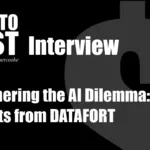As the world becomes increasingly digitized, the creative industries in the UK are facing a new challenge: artificial intelligence (AI). While AI has the potential to revolutionize the way artists create and fans consume, it also poses a threat to the intellectual property rights that underpin the UK’s creative industries.
One of the most pressing concerns is the use of AI-generated music. While the technology has the potential to help musicians create new sounds and reach a wider audience, it also raises questions about who owns the rights to the music created by AI. Is it the developer or the artist who created the algorithm? The UK’s creative industries rely on a system that has allowed artists to be fairly compensated for their work, but the rise of AI could upend this.
It’s a familiar story in the world of creativity, as technological advances often bring both opportunities and challenges. However, there is reason to be optimistic about the future of the creative industries in the UK. The government has identified the sector as a priority for economic growth, and there is a growing recognition that AI can be a powerful tool for artists and fans alike.
As the creative industries in the UK face the challenge of AI, business leaders across the spectrum are calling for a balanced approach. The tech sector is working with music artists and record labels to explore the possibilities of AI-generated music, but there is also a recognition of the need to protect artists’ rights and maintain the integrity of the creative process.
The key is to ensure that AI is developed in a responsible way that benefits both artists and the wider community. This means striking a balance between the potential benefits of AI and the need to protect the intellectual property rights of artists. It also means ensuring that AI is used to enhance human creativity, rather than replacing it.
There are already examples of AI being used to great effect in the music industry. For example, AI-powered music recommendation algorithms are helping streaming services suggest new music to listeners, while AI-generated lyrics are being used by some artists to speed up the songwriting process. These are promising developments, but they must be accompanied by a recognition of the importance of human creativity and the need to protect artists’ rights.
In order to embrace AI with care, the UK’s creative industries must invest in research and development to explore the potential of AI while also ensuring that artists are fairly compensated for their work. Striking a balance between the potential benefits of AI and the need to protect the creative process that has made the UK a world leader in the arts is crucial.
In conclusion, the rise of AI presents both opportunities and challenges for the creative industries in the UK. While there are risks associated with the use of AI-generated music and other creative works, there are also significant benefits to be gained. The key is to ensure that AI is developed in a responsible way that benefits both artists and the wider community. With the right approach, the UK’s creative industries can continue to thrive and deliver cultural and economic value for years to come.










